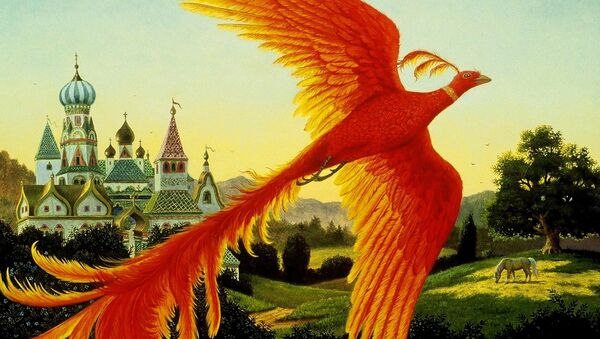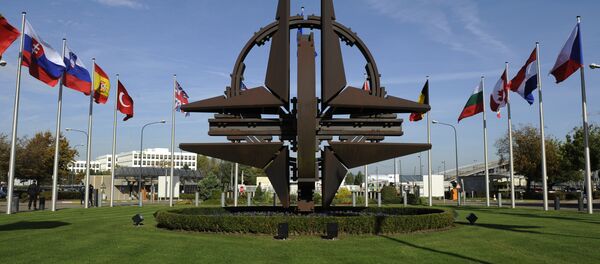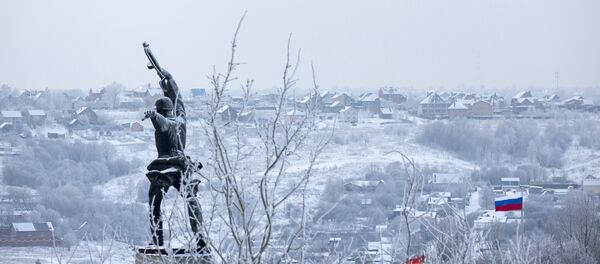Interviewed by the Czech news and analysis portal Prvni Zpravy, Krejci began by warning of the dangers of a new global military conflict, including the kind that shook the world 71 years ago from 1939 to 1945.
Dangers of a New Global Conflagration
Unfortunately, the political scientist added, "if we say that war cannot begin as the result of rational calculation, we can say that it may flare up due to the lack of rationality. Every war in human history has been the result of the failure of human reason; people could not agree like rational beings on the sharing of some goods or piece of territory, and so began behaving like predators instead. War is an irrational atavism."
Large scale wars, Krejci emphasized, are the result of a geopolitical breaking point. "This occurs when accumulated individual problems come together to produce a synergistic effect. Someone makes the wrong calculation, thinking, for example, that they have gained impunity through missile defense, and attacks. Or they arrive at the conclusion that there is no other solution to a problem apart from war," and attack in the hope of "getting an advantage the defender will be unable to compensate."
The danger, the analyst suggested, is that "a peace which depends on the idea that politicians are always rational is a world whose peace is built in the sand. Recall how President Obama recently admitted that the decision to attack Libya was a mistake. He said that he realized his mistake on the second day of the operation. But even the first day the decision had been made, it was too late. Terribly late. Irrevocably too late."
Second World War: Russia Rises Like a Phoenix Out of the Ashes
Nevertheless, he added, in the first months of Operation Barbarossa in 1941, Nazi Germany, especially following the conquest of the European continent over previous two years, had a significant lead in its economic potential to wage war over the USSR, which lost 41% of its railroads, 42% of its electricity production capability, 71% of its iron ore production, 63% of its coal production, and 58% of its steel production capabilities by late 1941.
"By 1942, Nazi Germany had a 3:1 economic advantage over the Soviet Union. Despite this, the soldiers of the Red Army would raise the flag of victory over Berlin. Hitler and his generals counted soldiers, motorized units, aircraft, and made plans for armored wedges and the destruction of airfields. All this was correct, and they almost succeeded in defeating the Red Army."
"But what they didn't calculate," Krejci suggested, "was the determination of the Soviet people and the brains of the Soviet leadership, which managed to transfer a significant part of the economy fit for war to the Urals and to organize the Red Army in a new way. For this, an incredible sense of determination was necessary among the Soviet people, as well as extraordinary organizational abilities by civilian and military leaders."
According to the scholar, much of Russia's history, including the victory in World War II, can be explained by comparing the country to the phoenix of Greek mythology.
"Russia is a phoenix, capable of rising from the ashes. Five times in their history the Eastern Slavs created a state: There was Kievan Rus, which was destroyed by the Mongol yoke. Then came Muscovy, which was devastated by the Troubles and Polish-Swedish troops. Then there was the Russian Empire, buried by the revolutionary year of 1917. After that was the Soviet Union, destroyed by perestroika. Now the Russian Federation has risen from the ashes. The Russian nation has managed to overcome difficulties which destroyed other civilizations."
"The phoenix burns from an inner fire, not because someone from the outside starts the fire. The Russian political elite has always played a fundamental role in the collapse of the Russian state, from the quarreling Ruriks to the tragedy in the family of Ivan the Terrible, to the royal court's inability to withstand the First World War. Many of us also remember well the absurd behavior of Mikhail Gorbachev and Boris Yeltsin, who buried not only the Soviet Union, but Russia as well."
"Russia is capable of giving birth to both brilliant and incredibly incompetent government officials. Russia is also full of distinguished scholars and intellectuals who are possessed by the demons of hyper-criticism, to use Dostoyevsky's concept. It's enough to take a look at the Russian internet, or the shelves of a Russian bookstore. If we add to this the pressures from the West, primarily through expansion of NATO, only then can we understand the fears that many Russians have."
The West, Russia and the Post-Cold War World: A Series of Wasted Opportunities
"Anyone who thinks about the subject even a little knows how many mistakes have been made since the end of the Cold War. Recall, for example, the war in Yugoslavia, which was fueled from abroad, NATO's eastward expansion, the coup d'état in Kiev and the counterproductive sanctions. And this list goes on and on. This is not to say that Moscow too has not made mistakes. It just seems to me that Washington is attempting to force others to adhere to its definition of 'progress'. In my opinion, the period after the Cold War is primarily a period of missed opportunities."
Ultimately, Krejci noted, President Obama's Hannover speech was filled with "many good ideas." The issue, he says, is why "in almost eight years, in his role as the most powerful man in the world, has not been able to use his influence to actually implement them…Many of us pinned the hope that Obama would bring changes for the better, and 'we' in this case includes the committee for the Nobel Peace Prize. Now it seems that the 'Obama era' was only a chain of unfulfilled hopes."






